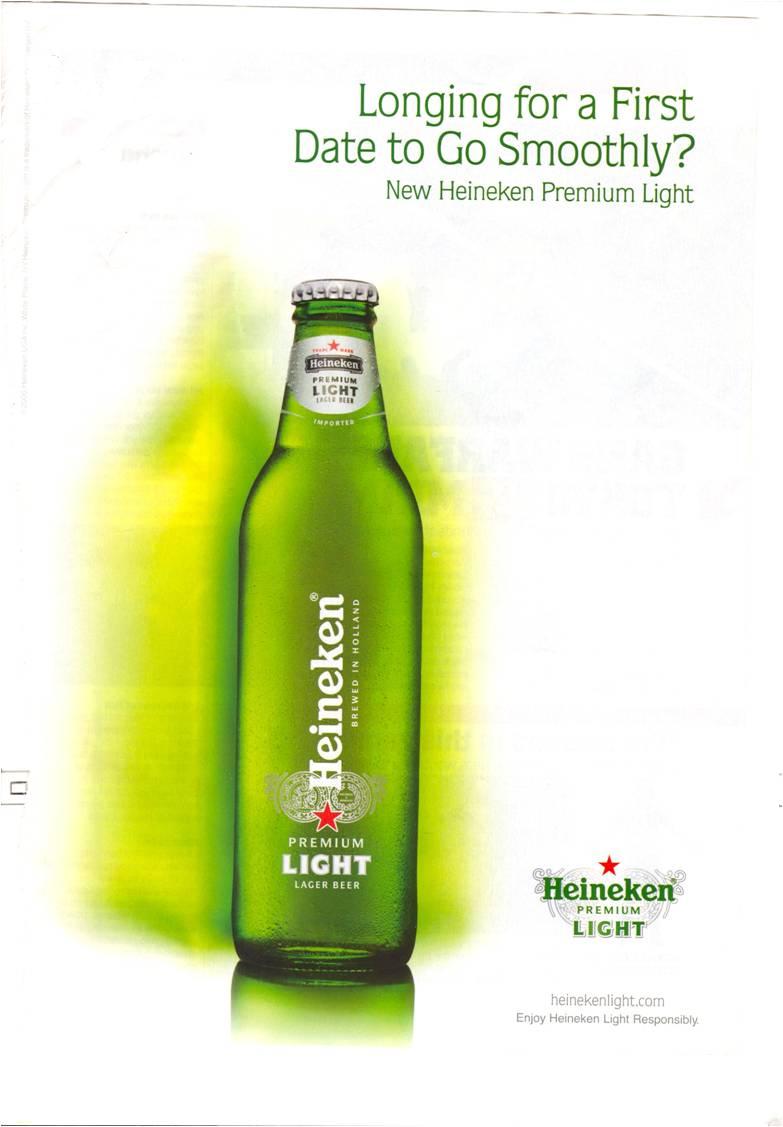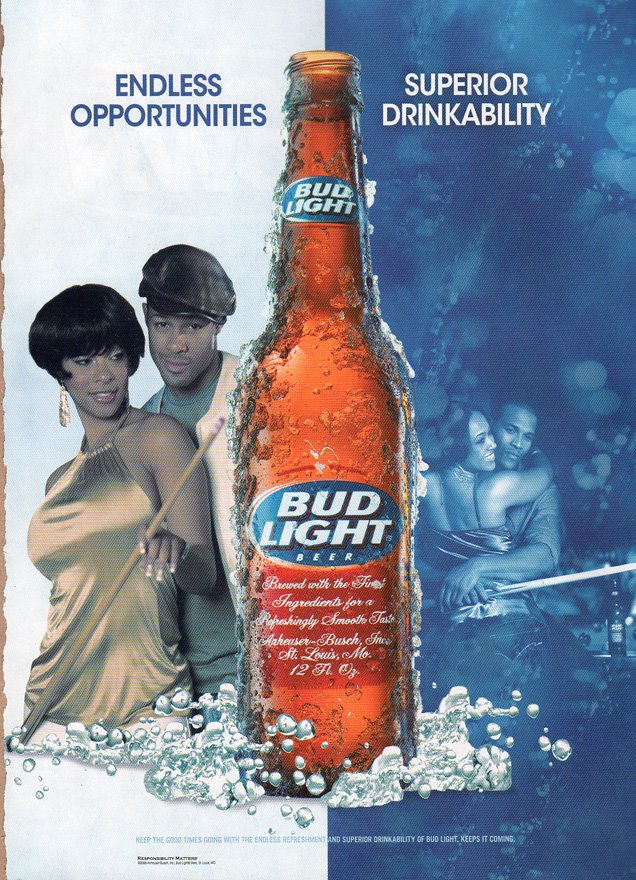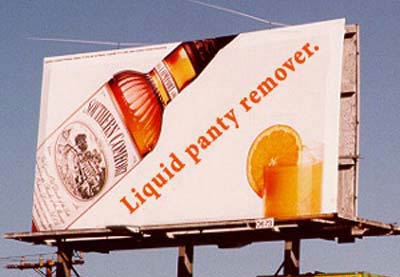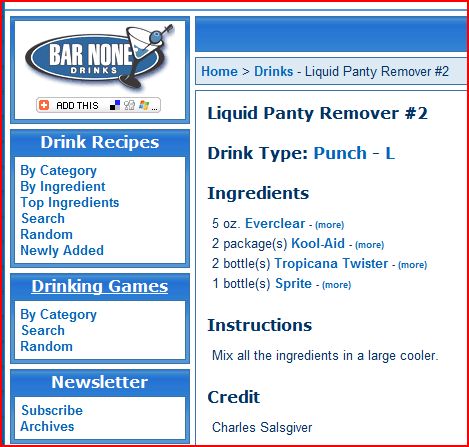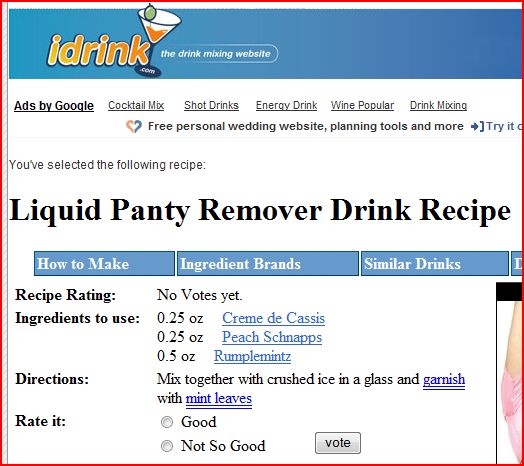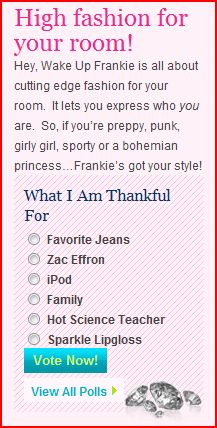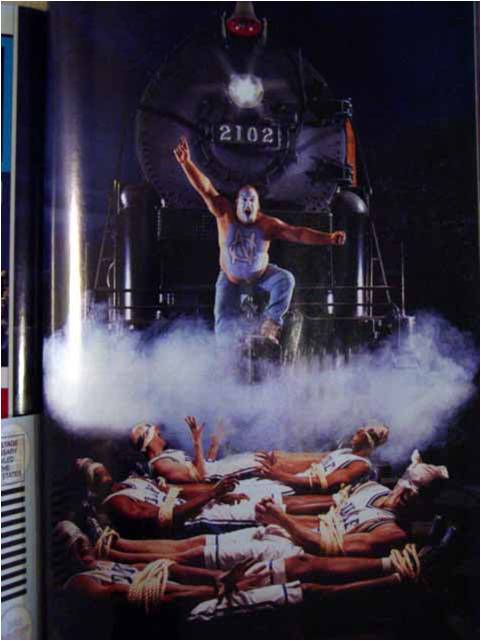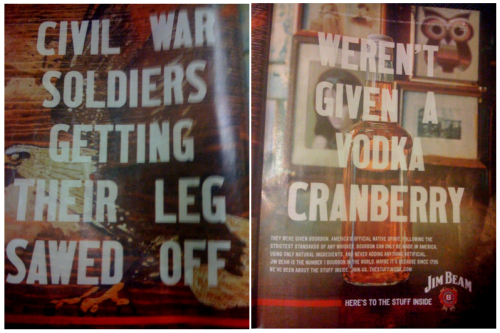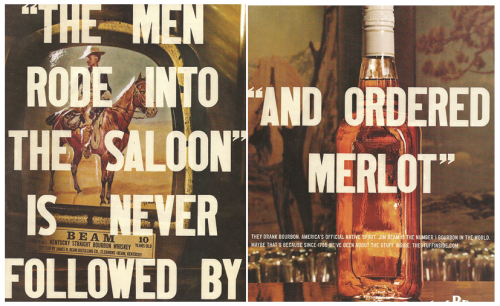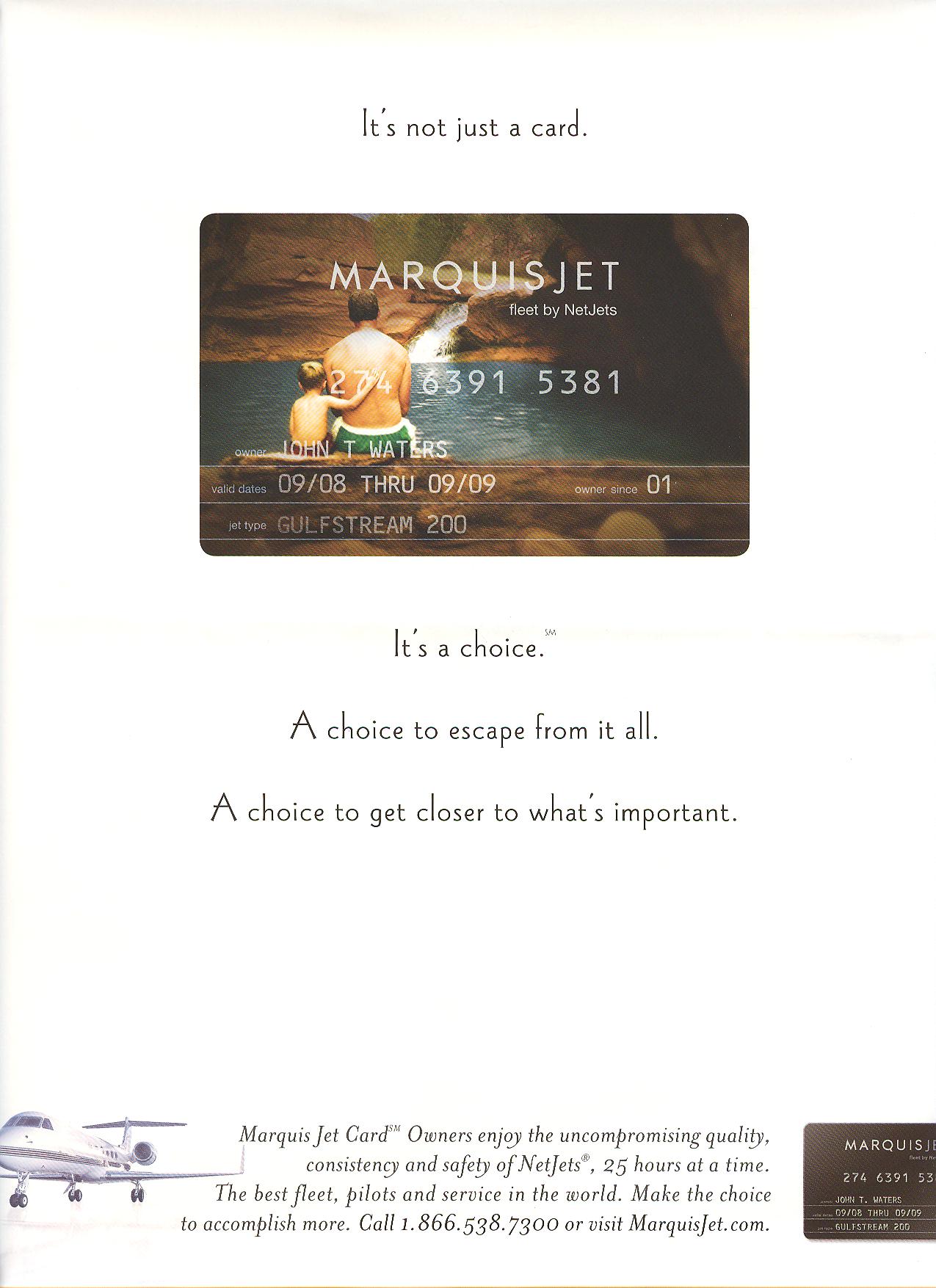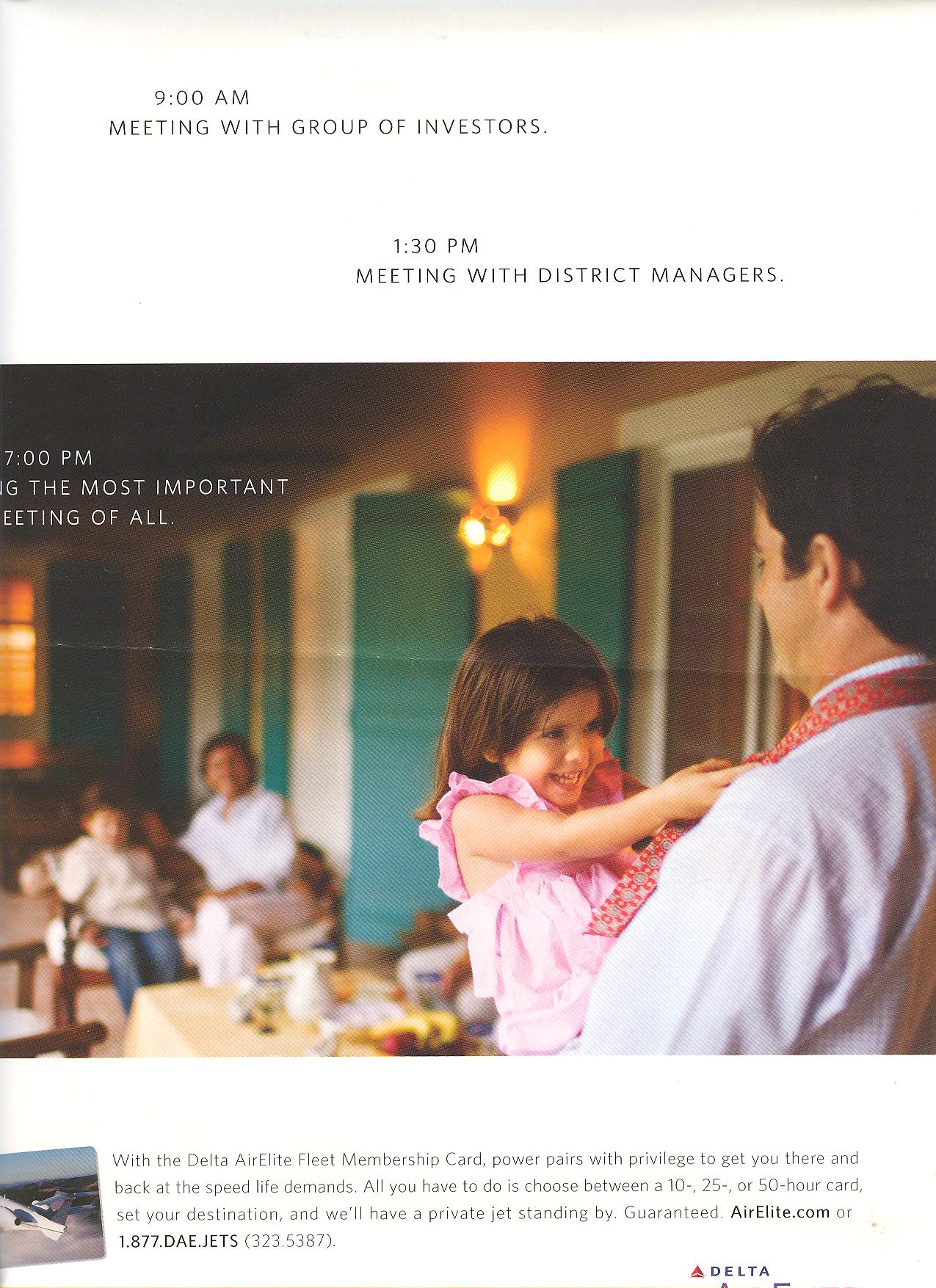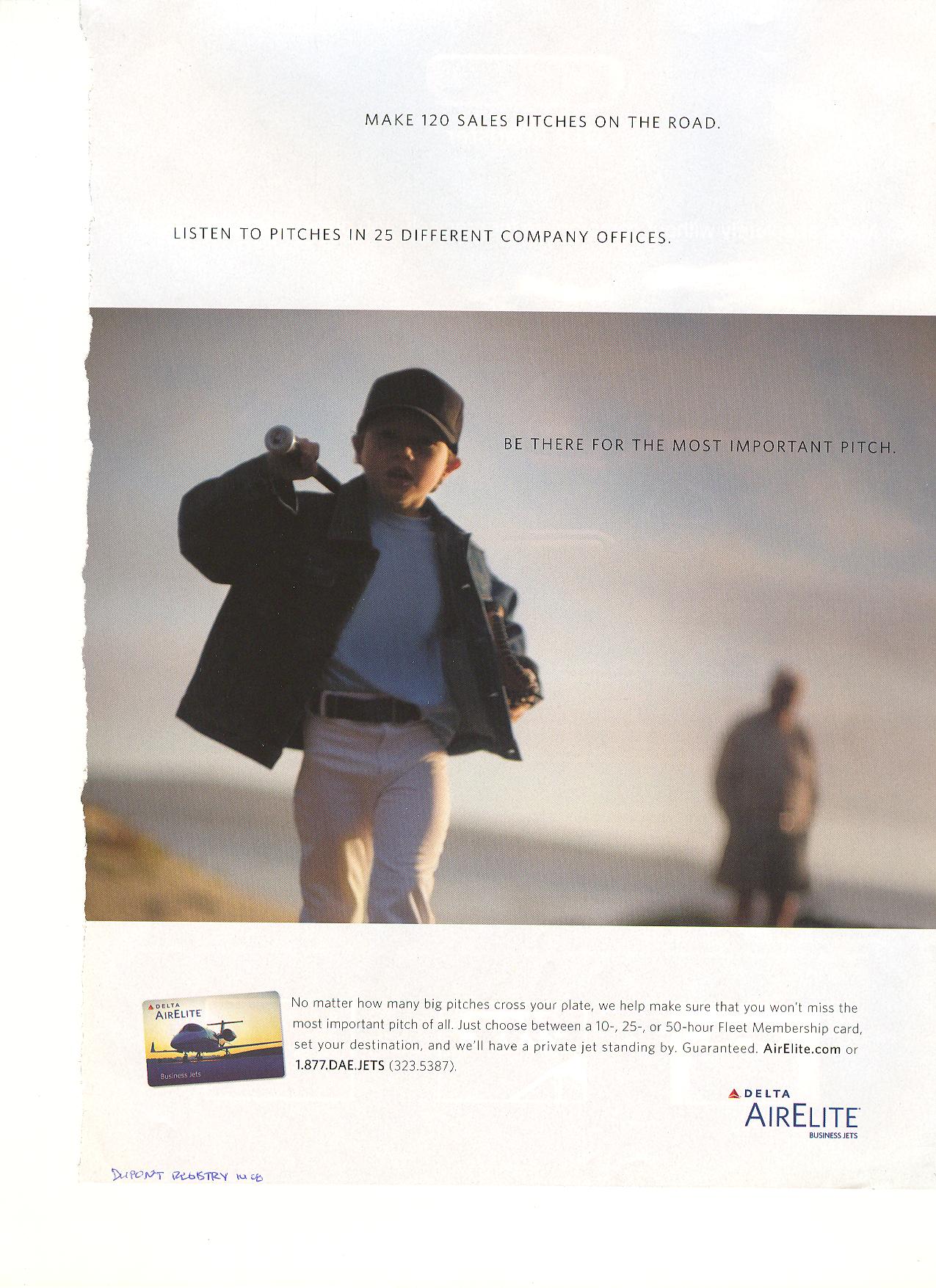I’ve never been able to find a picture of it, but when I was in graduate school (not so long ago) and living in Madison, Wisconsin, there was an ad for Bacardi on the side of a city bus that said: “Bacardi, the Ultimate Wingman.” A wingman is a friend who helps you get laid, so the not-so-subtle message of the ad was: “get’er drunk and she’ll do ya!”
Here are two ads that have, essentially, the same message (the first was given to me by my student, Bo; the second was found here).
This one could be interpreted as, “Drink Heineken so you won’t be nervous,” or, “Drink Heineken so you’ll get what you want without any trouble.”
In this ad for Bud Light, with the copy “Endless Opportunities,” the man and the viewer of the ad exchange a conspiratorial gaze, while the woman glances to the side or, perhaps, back at him. Is the message, “If I’m drinking Bud Light, anything could happen,” or “If she’s drinking Bud Light, anything could happen”?
See also this ad for, ostensibly, a date rape drug.
An anonymous commenter pointed us to billboard below advertising Southern Comfort as a “liquid panty remover.” Before we get our panties in a bunch, I should point out it’s a hoax (thanks, Vidya):
So this is a hoax. It still trivializes trying to manipulate women by getting them drunk (at best) and date rape (at worst), but it could have been produced by any yahoo with a computer. Yahoos with computers can do anything they like, I’d be more concerned if it was circulated by the company that markets Southern Comfort.
That said, in looking it up to discover it was a hoax, I discovered about a dozen recipes for mixed drinks called “Liquid Panty Remover.” Here are some screen shots:
So I guess there was good news and bad news.
NEW! In this ad, sent in by HighJive of MultiCultClassics, the brandy is the “producer.” The producer is the person who makes a film happen. Thus the sexy scene that is about to ensue is attributed to the alcohol. (Also notice the linking of the product with pornography.)
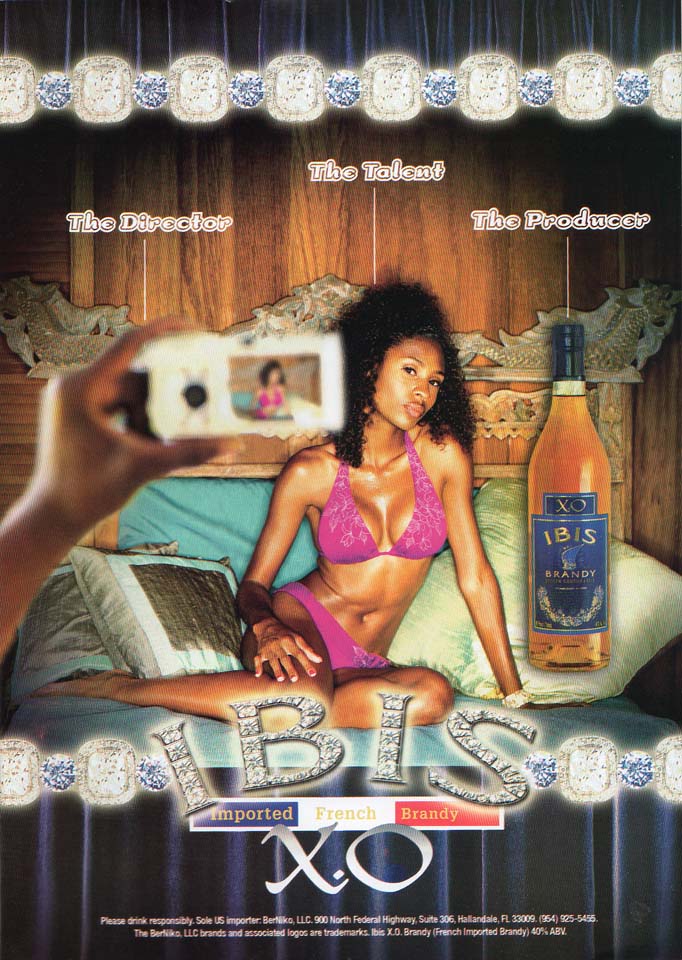
Also in sexualizing alcohol: “nice cans,” “she loves a cockatoo,” sexy robots (see here and here), “aged longer, tastes smoother,” and, um, this one.

